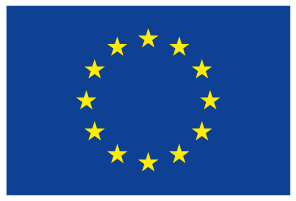Germany
2007
- Type : Project
- Size : Local community
- Area : Residential
Environmental benefit
Seasonal Heat Storage “Am Ackermannbogen” in Munich
Share
Germany
2007
- Type : Project
- Size : Local community
- Area : Residential
Environmental benefit
Discover this use case online


Munich, the capital of the Bavaria state in South-East Germany, is one of the richest and most prosperous cities in Europe. Munich also hosts one of the largest heating networks in Europe. It has set very ambitious climate objectives, one of them being switching to 100% renewable district heating by 2040. A solar heating system was built between 2005 and 2007 in the district “Am Ackermannbogen”.
The system supplies about 320 apartments with hot water and heat for space heating in winter. Heat is collected through solar collectors on the rooftop of the apartments. This heat is transported by a water/glycol mixture through pipelines to the seasonal underground hot water storage tank which heats up until autumn to about 90°C. The storage tank is well insulated. During winter, this heat is transported to the apartments (good thermal insulation standard buildings) for space heating and hot water supply.
Depending on the weather conditions of the winter, the stored heat is usually sufficient until January. After this period, a thermally operated lithium-bromide absorption heat pump (560 kW) uses the heat of the district heating network of Munich (80-120 °C) as well as the remaining heat of the storage tank (down to 10 °C) in order to supply the households with heat for the rest of the winter. The supply temperature to the households is about 60 °C. About 45-50 % of the overall energy demand is provided through solar thermal energy.
 R-ACES has received funding from the European Union’s Horizon 2020 research and innovation programme under grant agreement N° 892429
R-ACES has received funding from the European Union’s Horizon 2020 research and innovation programme under grant agreement N° 892429
Munich, the capital of the Bavaria state in South-East Germany, is one of the richest and most prosperous cities in Europe. Munich also hosts one of the largest heating networks in Europe. It has set very ambitious climate objectives, one of them being switching to 100% renewable district heating by 2040. A solar heating system was built between 2005 and 2007 in the district “Am Ackermannbogen”.
The system supplies about 320 apartments with hot water and heat for space heating in winter. Heat is collected through solar collectors on the rooftop of the apartments. This heat is transported by a water/glycol mixture through pipelines to the seasonal underground hot water storage tank which heats up until autumn to about 90°C. The storage tank is well insulated. During winter, this heat is transported to the apartments (good thermal insulation standard buildings) for space heating and hot water supply.
Depending on the weather conditions of the winter, the stored heat is usually sufficient until January. After this period, a thermally operated lithium-bromide absorption heat pump (560 kW) uses the heat of the district heating network of Munich (80-120 °C) as well as the remaining heat of the storage tank (down to 10 °C) in order to supply the households with heat for the rest of the winter. The supply temperature to the households is about 60 °C. About 45-50 % of the overall energy demand is provided through solar thermal energy.
